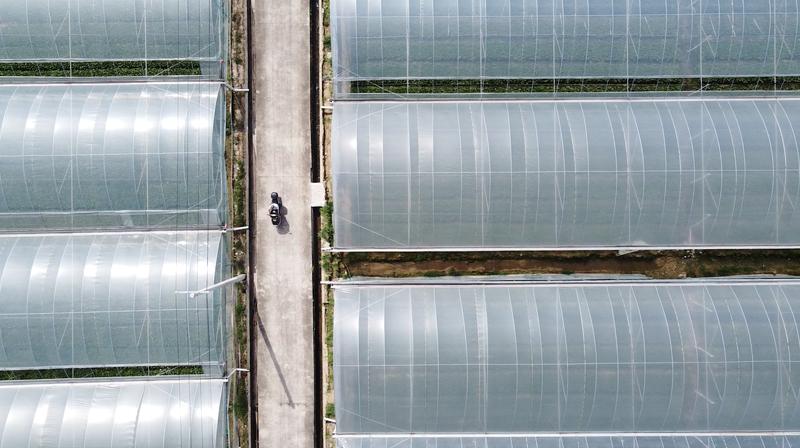From 'orange capital' to 'vegetable capital'
An aerial view of greenhouses at the Hefengshangpin farm. [WILLIAM XU / CHINA DAILY]
Li would then check on her son. Sometimes the boy would do her a favor by taking an afternoon nap in the basket, allowing her more time to catch up on her work. Within a few hours, baskets full of cabbages would be taken to a refrigerated truck bound for Longgang district in Shenzhen, in southern Guangdong. The vegetables would then be packed and labeled before being transported to Hong Kong to be sold at more than 30 outlets of Guangzhou-based food chain operator QianDama.
Ye Long, who is in charge of the 305,000-square-meter Hefengshangpin vegetable farm in the county of Longnan, said 30 percent of the vegetables are shipped to Hong Kong.
The farm, built in 2019, was licensed to supply vegetables to the Guangdong-Hong Kong-Macao Greater Bay Area last year and was among the first in Jiangxi to do so. It also supplies Hong Kong with up to six types of vegetables, including bok choy.
The farm's credentials give it an edge in securing orders from major vendor platforms across the mainland. It also comes with greater responsibility with regard to safety. The farm needs to conduct multiple tests to ensure that the vegetables are free of pesticide residue after they are harvested. Ye's office has a machine to carry out quick tests to monitor the quality of the vegetables.









